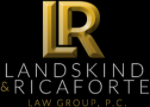 A last will and testament is the cornerstone of a comprehensive estate plan. However, one or two pages may not be enough to secure the future of everything you own—or the way it's passed down to your heirs. One way to identify potential problems before your passing is to make a written inventory of your property.
A last will and testament is the cornerstone of a comprehensive estate plan. However, one or two pages may not be enough to secure the future of everything you own—or the way it's passed down to your heirs. One way to identify potential problems before your passing is to make a written inventory of your property.
An itemized list of your assets accomplishes many things. It allows you to estimate the net value of your estate, verify ownership of your property, and organize your assets to ease the burden on your executor. Depending on the kinds of assets and the size of your estate, you can see at a glance how much of your property may avoid probate.
Information to Include on Your Property List
While the list can be as detailed as you like, some basic information should accompany each asset. For each item, be sure to include:
- An accurate and thorough description
- Whether you have sole ownership or shared ownership of the item
- If you share ownership, note the percentage of your share
- The current net value of the item (the estimated market value of your share minus any outstanding debts against it)
Types of Assets to List in an Estate Plan Inventory
Most people remember the significant assets they own—homes, cars, insurance policies—but memories get hazy on smaller or seemingly-insignificant items. To keep things organized, we recommend breaking everything you own down into groups:
- Liquid assets. Liquid assets are anything that can be readily converted into cash. Typical assets include savings, checking, and money market accounts, treasury bills or bonds, certificates of deposit, bonds, stocks, mutual funds, exchange-traded funds, money market funds, and precious metals.
- Real estate. This includes your family home, summer houses, buildings, co-ops or condominiums, apartments, mobile homes attached to the land, all business real estate (including income-producing properties), and undeveloped or agricultural land. For each one, include the street address (or geographical location), the items located there, and your percentage of ownership and outstanding mortgages. For example, “Summer condo in Florida at 555 Orange Street and all of the furniture and other personal property found there, half-owned by my wife, Sally.”
- Valuable personal property. Most of your tangible personal assets will fall into this category, including vehicles (automobiles, planes, boats, recreational vehicles, etc.), electronic equipment (such as computers or cameras), power tools, livestock or animals, retirement and insurance plans (such as IRAs, annuities, death benefits, life insurance), digital assets, and even frequent flyer miles. Be sure to include all items in your home: furniture, clothing, jewelry, furs, antiques, and collectibles (such as artwork, baseball cards, records, coins, comic books, or stamp collections).
- Business interests. Any partnerships, sole proprietorships, corporations, or limited liability companies you are a part of should be listed separately, including your percentage of profit shares, stock options, patents, royalties, copyrights, and trademarks.
- Money owed to you. Any monies owed to you can be collected by your estate after your passing, including personal loans, mortgages or promissory notes held by you, rents due from your income properties, or any payments for your professional or personal services that haven’t been paid in full.
- Miscellaneous. This category covers any property that doesn’t fit into the others. For example, you may wish to list intangible assets—factors that can increase or decrease the value of your estate. Brand recognition, intellectual property, business reputation, and corporate goodwill are intangible assets.
Let Us Help You Create a Thorough and Robust Estate Plan
The benefit of working closely with a Brooklyn estate planning attorney is access to a wealth of knowledge and experience. We can help identify assets you may have overlooked, estimate market value and tax implications, and specifically name your assets in a will or trust to ensure they go to the proper beneficiaries. Contact Landskind & Ricaforte Law Group, P.C., today through our online form or by calling 718-333-5007 to learn how we can be of assistance.
|
Related Links: |
